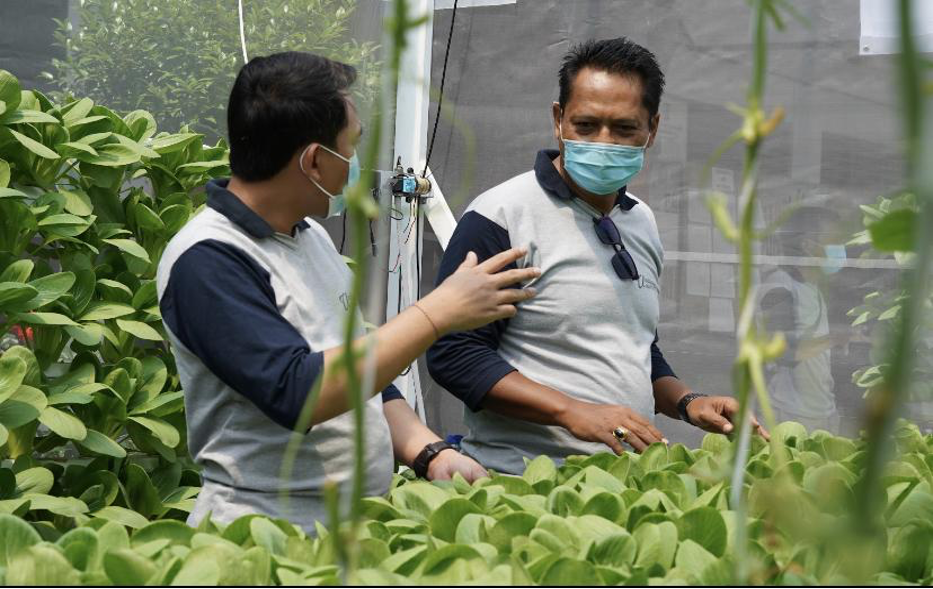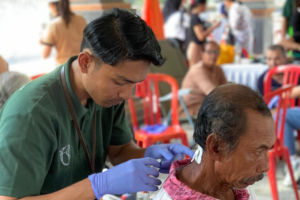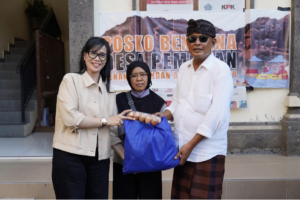
Accelerating Sustainable Development in Penebel Village: Undiknas Promotes Technology Utilization and Tourism Potential
Bali – Accelerating development in rural areas has become an urgent priority that requires the attention of various stakeholders, including higher education institutions. These institutions can play a crucial role through sustainable community service activities. Effective rural development helps prevent the migration of rural populations to cities, which is largely driven by economic factors. Universitas Pendidikan Nasional (Undiknas), as a leading higher education institution, is committed to expanding its community service efforts in Penebel Village. In the initial phase of this commitment, the focus was on building a greenhouse to serve as a model for precision agriculture and smart farming. Building on this foundation, the second phase of the project involves implementing a new work program that takes into account the potential of Penebel Village. (1/8/2024)
(1/08/2024)
To execute this new program, Universitas Undiknas has assembled a diverse team, including the Vice Rector for Academic, Research, and Community Service Development, the Deputy Vice Rector, and key figures such as the Head of Research Development and the Head of Community Services. This initiative also involves the heads of several study programs: Civil Engineering, Electrical Engineering, Information Technology, Environmental Engineering, Communication Science, Public Administration, Law, Management, Accounting, Digital Business, Tourism Destinations, and Psychology.
To execute this new program, Universitas Undiknas has assembled a diverse team, including the Vice Rector for Academic, Research, and Community Service Development, the Deputy Vice Rector, and key figures such as the Head of Research Development and the Head of Community Services. This initiative also involves the heads of several study programs: Civil Engineering, Electrical Engineering, Information Technology, Environmental Engineering, Communication Science, Public Administration, Law, Management, Accounting, Digital Business, Tourism Destinations, and Psychology.
The first focus is on the agricultural sector, revitalizing the use of technology in greenhouses by installing solar panels. This will empower the community to understand and build their own greenhouses independently. The leading departments in this initiative are the Information Technology and Electrical Engineering programs.
The second focus is on activating the tourism sector by supporting the Tourism Awareness Group (Pokdarwis), a community group aimed at driving tourism development in Penebel Village. The Tourism Destination study program successfully identified the village’s tourism potential, including the scenic views of green rice fields and opportunities for water tourism (tubing) and yoga retreats.
To implement these planned activities, the Civil Engineering Study Program has been actively involved and identified the need for several key improvements. These include widening roads, clearing vegetation, obstructing views of the rice fields, developing green building facilities, and cleaning the river. The Civil Engineering program reached these conclusions after conducting measurements of the access road and the water channel for the tubing attraction. Measurements showed that the water channel is 130 cm wide and 70 cm high, with a length of approximately 300 meters. The depth of the channel for wet mining is 30 cm, and the water flow speed is relatively fast at about 0.74 meters per second.
Furthermore, environmental issues, particularly waste management, will be addressed with the involvement of the Environmental Engineering and Electrical Engineering programs. The Environmental Engineering Study Program will introduce modern waste management techniques and educate the community on source-based waste handling. For non-organic waste, such as plastic, the Electrical Engineering Study Program will initiate the use of a pressing machine. This machine will convert plastic waste into market-ready plastic ore for further processing. By applying these methods, environmental damage caused by waste management and processing can be significantly minimized.
The survey conducted by the Undiknas team indicates that their involvement in the development of Penebel Village will proceed sustainably, with progress monitored through established milestones and periodic evaluations. The second phase of the Community Service activities in Penebel Village aligns with several Sustainable Development Goals (SDGs), including the eradication of poverty and hunger, promoting good health and well-being, ensuring quality education, providing clean water and sanitation, and supporting affordable and clean energy. Additionally, the project focuses on decent work and economic growth, responsible consumption and production, climate action, and the preservation of terrestrial ecosystems.
This comprehensive approach aims to address the key needs of the community while advancing broader global sustainability objectives.



